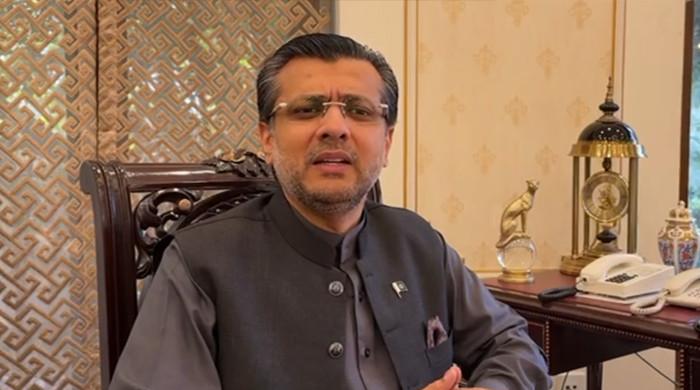PM unveils land information and management system to enhance food security
State-of-the-art system will help optimise agricultural production through innovative technologies
July 07, 2023

- 36.9 % of Pakistanis are food insecure, says World Food Programme.
- The establishment of LIMS is the first exceptional initiative.
- State-of-the-art system will help optimise agricultural production.
ISLAMABAD: In a bid to enhance food security and improve agricultural exports, Prime Minister Shehbaz Sharif on Friday inaugurated the Land Information and Management System — Center of Excellence (LIMS – COE).
The ceremony was attended by Chief of Army Staff General (COAS) Syed Asim Munir, ministers of finance, defence, planning development and special initiative, national food security and research, information, chief secretaries, agricultural experts and senior army officials.
According to the World Food Programme, 36.9 % of Pakistanis are food insecure and 18.3% of these are facing a severe food crisis.
Cognisant of the prevailing food insecurity, mass malnutrition and widening import bill of agricultural-related products vis-à-vis projected population growth and future domestic food needs, the national political, economic and military leadership has decided to undertake decisive and meaningful steps to address the critical issue.
The establishment of LIMS is the first exceptional initiative, aimed at enhancing food security and improving agricultural exports thus reducing the import burden on the national exchequer by transforming millions of acres of uncultivated and low-yield land within the country.
This state-of-the-art system will help optimise agricultural production through innovative technologies and sustainable precision agricultural practices based on the agroecological potential of land, while ensuring well being of rural communities and preservation of the environment.
The GIS-based LIMS will greatly improve the national agricultural yield by systemising digitisation of agriculture, providing real-time information to local farmers about soil, crops, weather, water resource and pest monitoring through remote sensing and geospatial technologies as well as minimising the role of middlemen through efficient marketing system.











